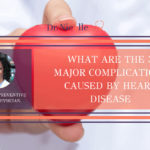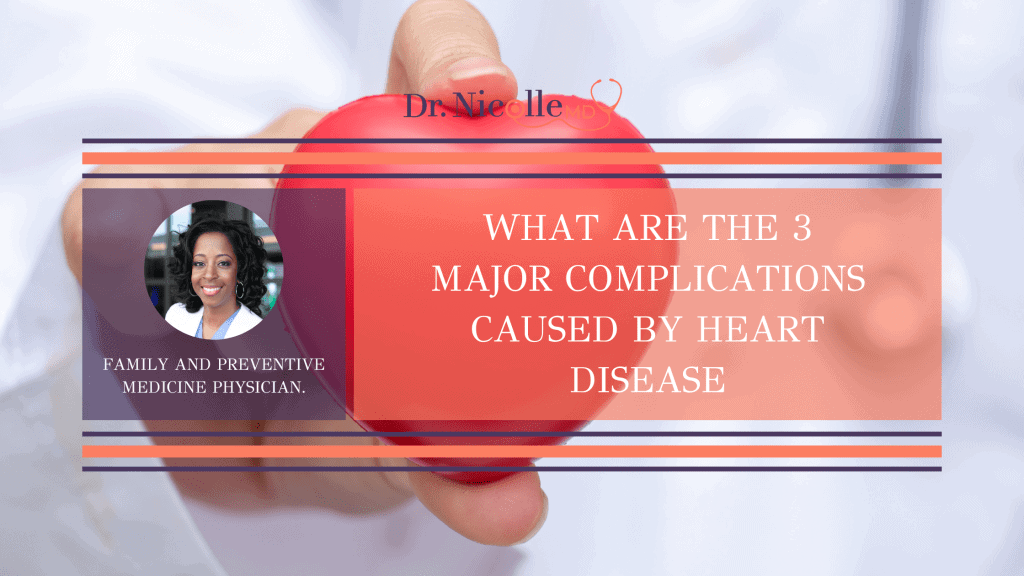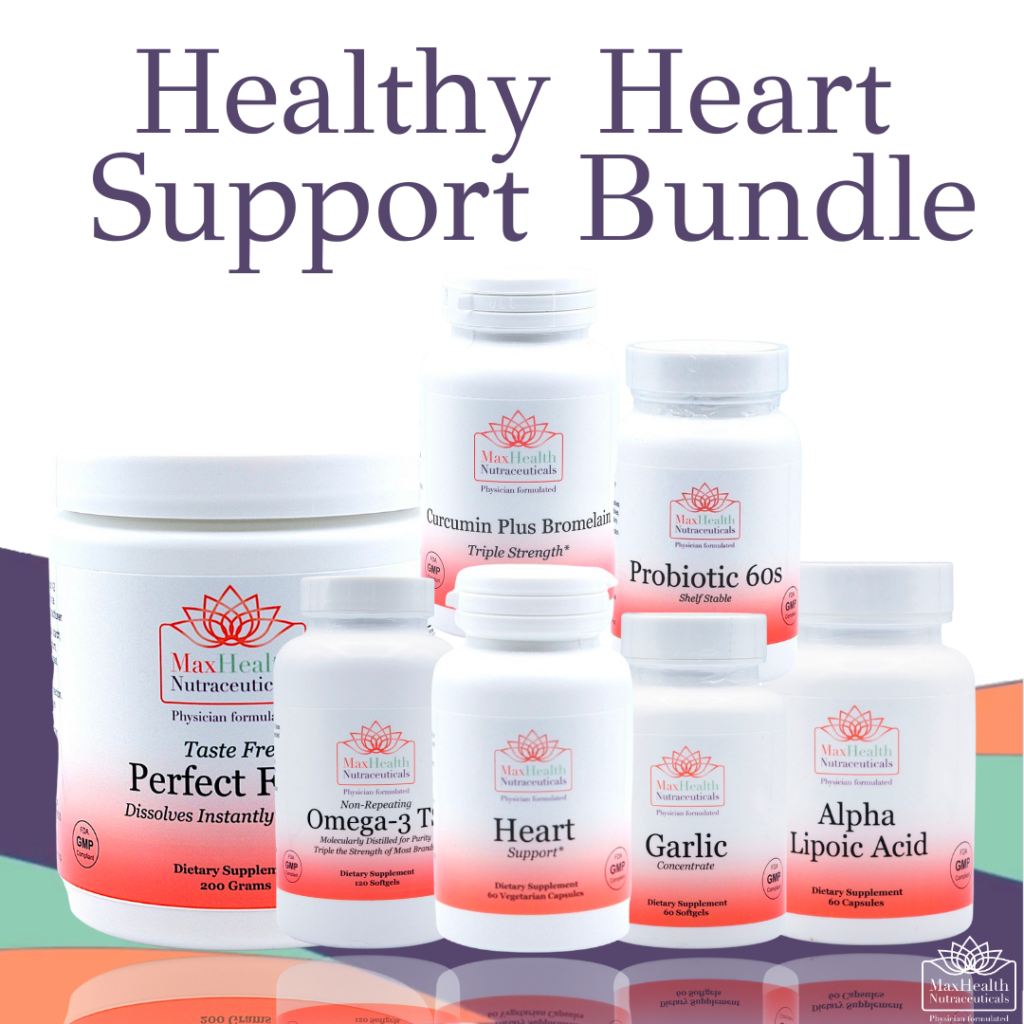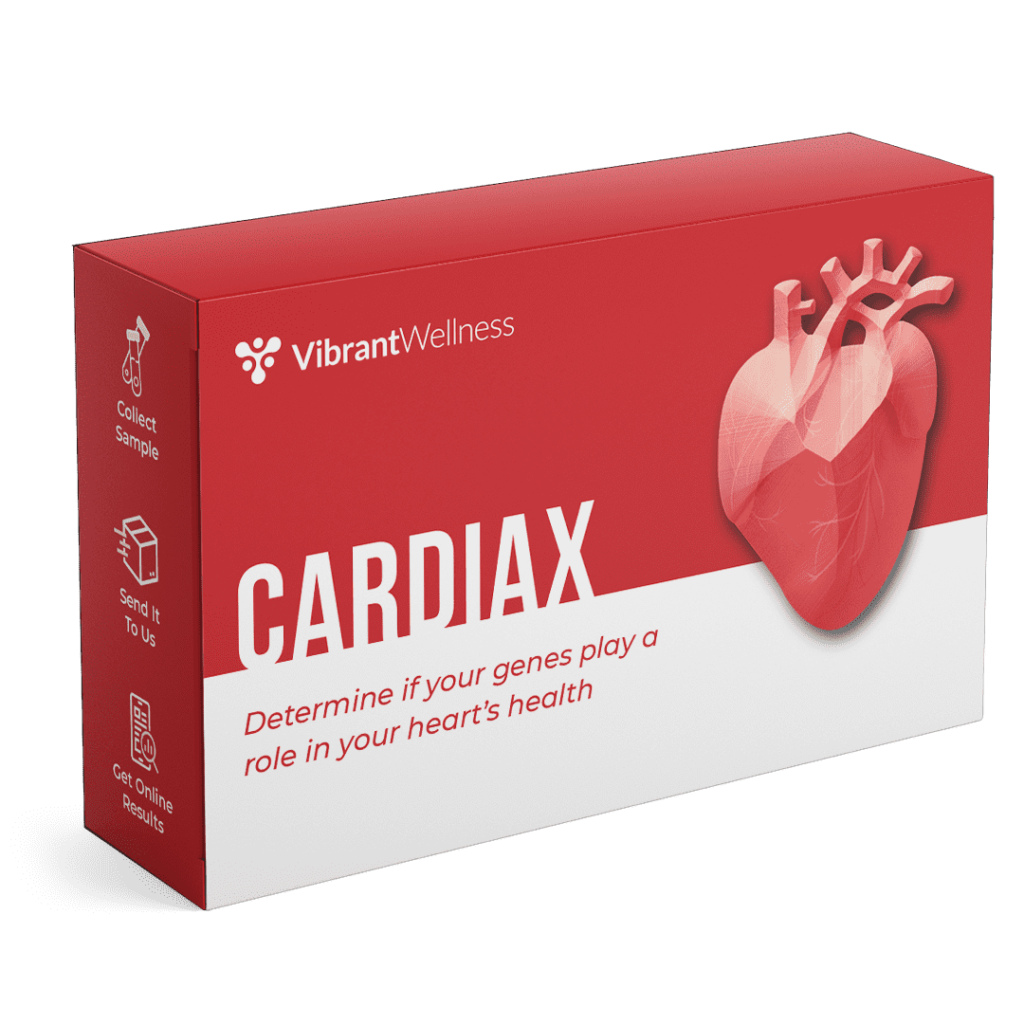

Hello. This is Heart Health Tuesdays! Today, we’ll talk about 3 major complications caused by heart disease. If you have heart disease, your heart is less efficient at pumping blood. The blood vessels throughout your body, which facilitate blood flow to various organs, may be damaged as well.

These conditions can have significant harmful effects on your heart as well as your other organs. The harder your heart has to work to maintain your body’s circulation, the more likely it is that you will experience a major complication from heart disease.
Heart Disease’s Major Complications
Heart disease can cause health issues that affect your heart, such as heart attacks and congestive heart failure. It can also cause renal failure.
Heart Attack
Heart disease can limit not only the blood flow throughout your body but also the supply of blood to your heart. The proper supply of oxygenated blood can be restricted due to plaque buildup in your coronary arteries, in a condition known as coronary artery disease. This is the primary cause of heart attacks.
During a heart attack, the cells in your heart don’t receive enough oxygen, and without oxygen, the cells start to die.

Common symptoms of a heart attack include chest pain, shortness of breath, and pain in other areas of your upper body like your arms, jaw, and neck. These symptoms can vary between men and women, with women being more likely to experience jaw or back pain and shortness of breath in addition to or sometimes instead of chest pain.
If you experience chest pain or otherwise believe you might be having a heart attack, seek medical treatment immediately. It is better to be overly cautious than to ignore the symptoms when you are really having a heart attack.
Congestive Heart Failure
Congestive heart failure is also caused by the narrowing of the arteries that supply blood to your heart due to plaque buildup. It is named after the ‘congestion’ that occurs in body tissue when blood is unable to circulate properly. This often causes swelling in the legs and ankles.
Heart failure can also be systolic or diastolic. Diastolic heart failure means your heart isn’t properly relaxing between beats, while systolic means it isn’t properly contracting.
Renal Failure
Chronic kidney disease affects about 14 percent of the population, with one of its most common causes being high blood pressure. Long-term high blood pressure, or hypertension, damages the arteries that supply blood to your kidneys, leaving them unable to filter waste in your blood properly. Damage to your blood vessels from heart disease can make this worse and speed up the progression of kidney disease to renal failure.
In the state of renal failure, your kidneys are no longer able to filter blood on their own. Renal failure is irreversible, and if left untreated, can be life-threatening. If you cannot get a kidney transplant, you will have to go on dialysis for the remainder of your life.
Avoiding These Complications
The most effective way to reduce your risk of having a heart attack, congestive heart failure, and renal failure is to target the factors that put you most at risk of developing heart disease in the first place.
Heart Disease Treatment
Many heart disease treatment methods involve lifestyle changes, which can be used to improve your health, whether you already have the warning signs of heart disease or not. Improve the strength of your heart by practicing routine exercise and avoiding eating too much fat, sugar, and sodium. Making these small changes can have a significant impact on your health.

If you already have heart disease, speak to your doctor about your concerns about developing heart complications. They will advise you on potential lifestyle changes, or they may recommend medication treatment.
Kidney Disease Treatment
Since heart disease can interfere with blood flow to the kidneys, take steps to improve the health of your kidneys too.
Kidney-friendly diets are low in protein, and they avoid minerals that are harder for your kidneys to process, such as phosphorus and potassium. Nutrition plans like the renal diet emphasize whole grains, fruits, and vegetables as part of a balanced meal.
It’s just as important to avoid excess sodium and fat in your diet for your kidneys’ sake as it is for your heart’s sake, and exercise can help here as well. Heart-healthy and kidney-friendly lifestyles are compatible with each other, and it’s a good idea to follow both if you want to prevent heart and kidney disease.
Food For Thought
The complications of heart disease can be life-threatening, and you must make every effort to try to prevent their occurrence. Always take heart disease seriously and do your part in managing the condition before it results in a heart attack, congestive heart failure, or renal failure.
If you would like to receive a free resource sheet to support your quest for better heart health, click the button below to receive your gift.
I’m excited to talk about this topic today because not only do I truly believe that you have the power to reverse heart disease and lower high blood pressure to improve your health, but the science also agrees! You can adopt healthy lifestyle practices that improve your health and enrich your life, which can in turn improve the lives of those close to you. You have the power to break the cycle of these chronic diseases so that you can leave a legacy of health to your loved ones.
As you may already know, I use lifestyle medicine as the first line of treatment, before medications, to treat lifestyle-related chronic diseases. Lifestyle-related chronic diseases include diabetes, hypertension, obesity, and some cancers, just to name a few. Lifestyle practices, such as eating a whole-food plant-based diet and regular physical activity, can help you improve blood pressure and reverse heart disease. In certain cases, these approaches may even outperform pharmaceutical therapy. But I always tell my patients that conventional medications may be appropriate at this time to prevent catastrophic illness, but over time, you can work to make the necessary lifestyle changes to possibly reduce and/or eliminate medications. Please remember to always consult your physician for your particular needs and circumstances prior to making any decisions whatsoever.
Is Dietary Supplementation Right For You?
There is a common saying, “You can’t outrun a bad diet.” This is especially true when it comes to heart health. Diet is sooooo very important… Did you know that your diet could be the key to a healthy heart? It’s true – what you eat (and don’t eat) can have a big impact on your cardiovascular health. So, if you’re looking to keep your heart in tip-top shape, make sure you pay attention to what you put on your plate.
Unfortunately, it can be difficult to eat a healthy diet in this day and age. It is very important to note that we are not eating the same foods we ate years ago because the soils have been depleted of critical nutrients through current industrial farming practices. And because the soil is not as good as it used to be, the food supply (grown from the depleted soil) is not as good as it used to be. For example, you are not getting the same levels of magnesium as you would have gotten 30 or even 50 years ago.
Second, much of the food has been genetically altered, which can impact the inherent and unique nutritional composition that each food possess. For example, ancient einkorn wheat has less gluten, more protein, more Vitamin A, and more beta carotene, than modern genetically modified wheat.
Third, the toxic load in the environment today is much higher than 100 years ago. We can see this with global warming, toxic landfills, polluted oceans and waterways, etc. Toxicity levels interfere with nutrient assimilation and absorption not just into the foods, but into our bodies as well.
For some people, vitamin and mineral supplements offer important health benefits. Supplements are designed to fight deficiencies found in our diet and complement the food we eat regularly. Supplements are basically “helping hands” to our daily food.
If you need extra help in getting the nutrients you need, and/or are unable to eat better, the supplements in my Healthy Heart Bundle may provide the extra boost you need.
These are my favorite Heart Health Supplements to use! This Healthy Heart Bundle will ensure you have the intake of the important vitamins, minerals, and probiotics to decrease inflammation and boost your innate wellness day and night. Taken together, it’s a solid plan for increasing your body’s natural resiliency while you lose weight and improve your heart health, naturally.
For best results make sure you use my heart health supplements with dietary changes including a whole food plant-based diet, regular exercise (at least 2-3x per week), regular sleep (8 hours per night), and intermittent fasting (at least 1-3x per week).
Tools to Improve Heart Health
Blood Pressure Monitoring
It’s very important to monitor your blood pressure. I often recommend an automatic upper arm blood pressure cuff, but a wrist blood pressure monitor is also acceptable.
Weight Monitoring
Since weight management is very important in blood pressure control, I recommend that you be mindful of your weight and its fluctuations, and that you monitor your weight AT LEAST on a weekly basis. I recommend a scale that includes a body composition monitor.
Taking Charge Of Your Heart Health
Heart health is a big topic. It’s in the news, on our minds, and for good reason; heart disease remains the leading cause of death in the U.S. But what if there was something you could do proactively to help protect your heart from future problems? Enter the CardiaX test—a revolutionary new way to take charge of your heart health!
What is CardiaX?
CardiaX is a comprehensive genetic testing panel that looks at mutations associated with common cardiovascular risks. It can be used to determine if there are any genetic factors at play in your heart health, and it can also identify potential areas of risk that may require further action. With this knowledge, you can make informed choices about your health today with the aim of improving long-term heart health outcomes.
Who Might Benefit from CardiaX?
If you have been diagnosed with or are at risk for atherosclerosis, abnormal cholesterol production, hypertension, stroke risk, and risk for heart attack then you may benefit from this test. Additionally, anyone who wants to know more about their genetic predispositions for common cardiovascular risks may also want to consider taking this test as well.
What Can I Do With My Results?
Your results will give you an indication of whether or not there are any potential genetic markers playing a role in your risk for developing certain conditions related to heart health. From there, you can work with your healthcare provider to develop a plan that takes into account these findings and helps you develop strategies for managing them going forward. In addition to lifestyle changes such as diet and exercise modification, selecting medications that are tailored specifically to your genetics could be beneficial as well.
In A Nutshell…
The CardiaX test is an exciting new way to take charge of your heart health by learning more about how genetics might be playing a role in certain cardiovascular risks. With this knowledge in hand, patients can make decisions informed by their own unique genetic profile that will help reduce their overall risk for developing certain conditions associated with heart disease. This type of proactive approach is key when it comes to protecting ourselves against this all-too-common affliction—so don’t wait another minute! Take control of your future and get started with the CardiaX test today!
Remember, healthy lifestyle behaviors–like eating a whole-foods plant-based diet that is low in sodium, being physically active, and stress management are the best ways to prevent and control high blood pressure. Please talk with your doctor about any complementary health approaches, including supplements, you use.

Dr. Nicolle Martin
Some of the links in this article are "affiliate links", a link with a special tracking code. This means if you click on an affiliate link and purchase the item, we will receive an affiliate commission.
The price of the item is the same whether it is an affiliate link or not. Regardless, we only recommend products or services we believe will add value to our readers.
By using the affiliate links, you are helping support our Website, and we genuinely appreciate your support.
Last updated on February 4th, 2022 at 12:54 pm

Minimize Medications. Maximize Health.
Are you super busy but need to take control of your health? Are you tired of being tired? Subscribe to my “Minimize Medications, Maximize Health Blog” and I’ll give you 7 Tips to Get Healthy in No Time absolutely FREE.







